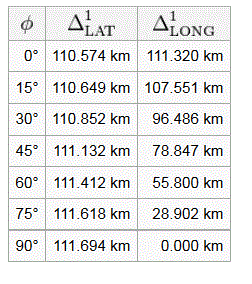Clockmaker John Harrison vindicated 250 years after ‘absurd’ claims
3 posters
Page 1 of 1
 Clockmaker John Harrison vindicated 250 years after ‘absurd’ claims
Clockmaker John Harrison vindicated 250 years after ‘absurd’ claims
One of Guinness World Records’ more unusual awards was presented at the National Maritime Museum yesterday. After a 100-day trial, the timepiece known as Clock B – which had been sealed in a clear plastic box to prevent tampering – was officially declared, by Guinness, to be the world’s “most accurate mechanical clock with a pendulum swinging in free air”. It was an intriguing enough award. But what is really astonishing is that the clock was designed more than 250 years ago by a man who was derided at the time for “an incoherence and absurdity that was little short of the symptoms of insanity”, and whose plans for the clock lay ignored for two centuries. The derision was poured on John Harrison, the British clockmaker whose marine chronometers had revolutionised seafaring in the 18th century (and who was the subject of Longitude by Dava Sobel). His subsequent claim – that he would go on to make a pendulum timepiece that was accurate to within a second over a 100-day period – triggered widespread ridicule. The task was simply impossible, it was declared. But now the last laugh lies with Harrison. At a conference, Harrison Decoded: Towards a Perfect Pendulum Clock, held at Greenwich yesterday, observatory scientists revealed that a clock that had been built to the clockmaker’s exact specifications had run for 100 days during official tests and had lost only five-eighths of a second in that period.
http://www.theguardian.com/science/2015/apr/19/clockmaker-john-harrison-vindicated-250-years-absurd-claims
http://www.theguardian.com/science/2015/apr/19/clockmaker-john-harrison-vindicated-250-years-absurd-claims
Guest- Guest
 Re: Clockmaker John Harrison vindicated 250 years after ‘absurd’ claims
Re: Clockmaker John Harrison vindicated 250 years after ‘absurd’ claims
Not before time to.

Irn Bru- The Tartan terror. Keeper of the royal sporran. Chief Haggis Hunter
- Posts : 7719
Join date : 2013-12-11
Location : Edinburgh
 Re: Clockmaker John Harrison vindicated 250 years after ‘absurd’ claims
Re: Clockmaker John Harrison vindicated 250 years after ‘absurd’ claims
The navy have a lot to thank him for and proves what a jealous prat Nevil Maskelyne was
well deserved recognition sadly to late for him
well deserved recognition sadly to late for him
Guest- Guest
 Re: Clockmaker John Harrison vindicated 250 years after ‘absurd’ claims
Re: Clockmaker John Harrison vindicated 250 years after ‘absurd’ claims
Well worth watching
Guest- Guest
 Re: Clockmaker John Harrison vindicated 250 years after ‘absurd’ claims
Re: Clockmaker John Harrison vindicated 250 years after ‘absurd’ claims
The original father time. I read his biography about a decade ago. They say about him:
Biography Online wrote:His most important invention was finding a solution to the issue of longitude. For a long time, the ability to know a ship’s longitude position had not been found. Numerous attempts had been made, but none successful. The ability to know longitude was essential to the safe navigation of ships. The problem was considered so important, Parliament offered a £20,000 reward for the first person who could provide a solution. Sir Isaac Newton himself had doubted whether such a device could be created.
Harrison’s invention was to develop a clock able to tolerate fluctuations in temperature and air pressure, and could keep very exact time for a long time. It took Harrison five years to develop his first sea clock (H1). It incorporated roller pinions, wooden wheels and two dumbbell balances linked together. After receiving approval of Royal Society, it was given its first sea trial on a route to Portugal. The tests proved very favourable, with Harrison’s clock accurately predicting longitude (compared to the old methods which were 60 miles out.) However, this was not enough for the Parliamentary prize which required use on transatlantic routes.
Over the next few years, he built different versions, improving on the design. Changing bar balances to circular balances (not affected by the rolling action of the sea). His next models, H2 and H3 were never entirely successful, and around 1750 Harrison abandoned his Sea Clock, and started working on a smaller sea watch.
Original Quill- Forum Detective ????♀️
- Posts : 37540
Join date : 2013-12-19
Age : 59
Location : Northern California
 Re: Clockmaker John Harrison vindicated 250 years after ‘absurd’ claims
Re: Clockmaker John Harrison vindicated 250 years after ‘absurd’ claims
i have a bit of a correction with the highlighted bit QOriginal Quill wrote:The original father time. I read his biography about a decade ago. They say about him:Biography Online wrote:His most important invention was finding a solution to the issue of longitude. For a long time, the ability to know a ship’s longitude position had not been found. Numerous attempts had been made, but none successful. The ability to know longitude was essential to the safe navigation of ships. The problem was considered so important, Parliament offered a £20,000 reward for the first person who could provide a solution. Sir Isaac Newton himself had doubted whether such a device could be created.
Harrison’s invention was to develop a clock able to tolerate fluctuations in temperature and air pressure, and could keep very exact time for a long time. It took Harrison five years to develop his first sea clock (H1). It incorporated roller pinions, wooden wheels and two dumbbell balances linked together. After receiving approval of Royal Society, it was given its first sea trial on a route to Portugal. The tests proved very favourable, with Harrison’s clock accurately predicting longitude (compared to the old methods which were 60 miles out.) However, this was not enough for the Parliamentary prize which required use on transatlantic routes.
Over the next few years, he built different versions, improving on the design. Changing bar balances to circular balances (not affected by the rolling action of the sea). His next models, H2 and H3 were never entirely successful, and around 1750 Harrison abandoned his Sea Clock, and started working on a smaller sea watch.
The clock did not "predict" longitude, it was a accurate measurement of time at Greenwich ,and from a calculation of speed ,distance and time position of the sun,stars at midday/midnight relative to Greenwich, longitude could be established
The length of a degree of longitude depends only on the radius of a circle of latitude. For a sphere of radius a that radius at latitude φ is (cos φ) times a, and the length of a one-degree (or π/180 radians) arc along a circle of latitude is

When the Earth is modelled by an ellipsoid this arc length become

where e, the eccentricity of the ellipsoid, is related to the major and minor axes (the equatorial and polar radii respectively) by

An alternative formula is

Cos φ decreases from 1 at the equator to zero at the poles, so the length of a degree of longitude decreases likewise. This contrasts with the small (1%) increase in the length of a degree of latitude, equator to pole. The table shows both for the WGS84 ellipsoid with a = 6,378,137.0 m and b = 6,356,752.3142 m. Note that the distance between two points 1 degree apart on the same circle of latitude, measured along that circle of latitude, is slightly more than the shortest (geodesic) distance between those points; the difference is less than 0.6 m.

Guest- Guest
 Re: Clockmaker John Harrison vindicated 250 years after ‘absurd’ claims
Re: Clockmaker John Harrison vindicated 250 years after ‘absurd’ claims
eeeep.......and you recon you have a problem with discalculia???
Guest- Guest
 Re: Clockmaker John Harrison vindicated 250 years after ‘absurd’ claims
Re: Clockmaker John Harrison vindicated 250 years after ‘absurd’ claims
I know strange but true the practical application is a lot simpler for me than the math implies but i do need a calculator to do the ....calculationsdarknessss wrote:eeeep.......and you recon you have a problem with discalculia???
the actual formula for some inexplicable reason makes sense to me but my field was marine engineering not navigation although i did get instruction in the navigation and can take bearings and transpose them to a chart or map
My C.O often commented on how i did things a strange way but still arrived at the correct result
it drove him and others to despair at times
my brain just sees things differently than most i guess
Guest- Guest
 Similar topics
Similar topics» Czech agent claims 15 Labour MPs met spies as Ken Livingstone and John McDonnell deny claims
» 'Absurd' council BANS children under 11 years old from 100th anniversary Remembrance Day parade over health and safety fears
» Cab Driver Claims John Elway Is The Best QB Of All-Time, Has No Idea Elway Is In The Cab
» Fox claims Noah's Ark was "found 2,000 years later" in reference to missing Malaysian flight
» Computer robots will outsmart humans within 15 years, Google director claims (and a giant laboratory for artificial intelligence is already planned)
» 'Absurd' council BANS children under 11 years old from 100th anniversary Remembrance Day parade over health and safety fears
» Cab Driver Claims John Elway Is The Best QB Of All-Time, Has No Idea Elway Is In The Cab
» Fox claims Noah's Ark was "found 2,000 years later" in reference to missing Malaysian flight
» Computer robots will outsmart humans within 15 years, Google director claims (and a giant laboratory for artificial intelligence is already planned)
Page 1 of 1
Permissions in this forum:
You cannot reply to topics in this forum
» TOTAL MADNESS Great British Railway Journeys among shows flagged by counter terror scheme ‘for encouraging far-right sympathies
» Interesting COVID figures
» HAPPY CHRISTMAS.
» The Fight Over Climate Change is Over (The Greenies Won!)
» Trump supporter murders wife, kills family dog, shoots daughter
» Quill
» Algerian Woman under investigation for torture and murder of French girl, 12, whose body was found in plastic case in Paris
» Wind turbines cool down the Earth (edited with better video link)
» Saying goodbye to our Queen.
» PHEW.
» And here's some more enrichment...
» John F Kennedy Assassination
» Where is everyone lately...?
» London violence over the weekend...
» Why should anyone believe anything that Mo Farah says...!?
» Liverpool Labour defends mayor role poll after turnout was only 3% and they say they will push ahead with the option that was least preferred!!!
» Labour leader Keir Stammer can't answer the simple question of whether a woman has a penis or not...
» More evidence of remoaners still trying to overturn Brexit... and this is a conservative MP who should be drummed out of the party and out of parliament!
» R Kelly 30 years, Ghislaine Maxwell 20 years... but here in UK...